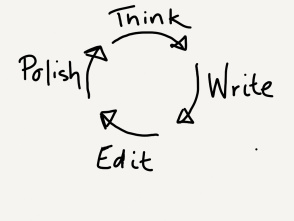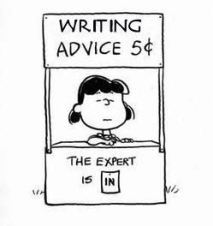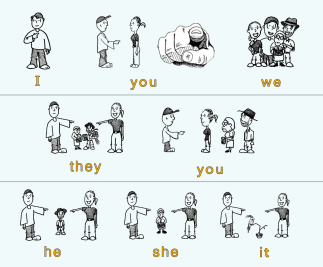Nick Travers's Blog, page 2
July 12, 2018
Developing Your Writer’s ‘voice’
[image error]Find your authentic voice is simply a matter of finding a writing style that flows naturally for you and develops from regular writing.
It involves your use of vocabulary, use of grammar, and the way you construct sentences and dialog.
Learn the grammar rules, then break them creatively until it all ‘clicks’. Don’t be afraid to experiment with different styles, points of view, types of story, genre, writing tenses, characters etc. In fact, the more you experiment the better. Realising you have a voice to your writing is a real confidence booster – it is a style unique to you.
If you want to develop a particular style of voice, then find writing in that style and analyse what makes that voice different from your own (word choice, vocabulary, sentence construction, and grammar). Draw up a set of rules that you can apply when editing your writing that will help produce the style you want.
Applying your voice or style happens largely at the editing stage of writing, so second or third edit after you complete your first draft.
Whilst it is true that practice helps to refine what you produce in your first draft, you will always need to edit to achieve the style/voice you want.
That’s the theory; now to the practical stuff. Here’s how you do it:
Write, write, write, edit, edit, edit, applying all the grammar rules rigorously (White & Strunk’s little book, Elements of Style might help with this).
Write, write, write, edit, edit, edit, applying sentence structure and grammar artistically (Noah Lukeman’s little book, A Dash of Style might help with this).
Experiment, experiment, experiment (repeat as often as necessary).
Start writing a novel/novella length piece of writing. Somewhere between chapters 5 & 15 you will hopefully realise you have found your voice.
Modify as necessary
There is, unfortunately, no short cut to this process. Some will find their ‘voice’ quickly, some will take a long time to find it, some will change their ‘voice’ as they change character or genre. There are no hard and fast rules.
The best way to really get a handle this and develop your own ‘voice’ is to post chapters to an online writing forum, like Wattpad, and then provide constructive feedback on other peoples stories. It sounds counter-intuitive, but you will discover far more about your own writing preferences and style by feeding back on someone else’s work.
Hope this helps,
Nick
April 24, 2018
Edit to Improve Your Writing

So I was asked by a reader recently how editing makes you a better writers. I need to break this down into three areas: the skill/craft of writing, creativity, improvement techniques.
The Skill/Craft of writing
Editing, improving, and re-writing are all skills I have had to learn. As a person with mild dyslexia, spelling is a real problem for me. Also, in common with most people, I find it very difficult to spot my own errors. Becoming aware of these issues is the first step in over coming them.
As a writer, you develop ways/processes to mitigate the errors in your writing: You learn to edit, to proof read, to spell check. Technology is a huge help in this regard. However, you also need to accept that if you are serious about writing, the skills and opinions of others are also useful tools that can be employed in creating a better product.
Creativity
 I have learned that to truly and freely create, I need, to a large extent, to ignore spelling and grammar. In particular, I need to ensure that considerations about spelling, grammar, story structure, dialogue etc, do not get in the way of the creative process. My first draft is never going to be accessible to others so why worry about these things.
I have learned that to truly and freely create, I need, to a large extent, to ignore spelling and grammar. In particular, I need to ensure that considerations about spelling, grammar, story structure, dialogue etc, do not get in the way of the creative process. My first draft is never going to be accessible to others so why worry about these things.
All, errors, correction, alterations, amendments and additions or deletions will be taken care of in the different rounds of the editing process. One key lesson I have learned is this: there is nothing that cannot be re-written or re-worded at stage in the editing process. Very few sentences, or even thought, from my original first draft will make it through to the final edit without being re-written, re-worded, or re-structured at least twice.
Improvement techniques
 I find the best way to improve my own writing/editing/crafting/story writing skills is to constructively comment on other people’s writing: at it’s simplest, three things I liked about your writing; three things I might have done differently.
I find the best way to improve my own writing/editing/crafting/story writing skills is to constructively comment on other people’s writing: at it’s simplest, three things I liked about your writing; three things I might have done differently.
A platform such as Wattpad or another writing platform, where people are actively looking for suggestions and feedback, and who are prepared to feedback on your own writing would, be more accommodating and conducive to the improvement of your writing/editing skills.
I find it amazing, just how much I learn about my own writing, simply by providing positive feedback on other people’s writing.
Hope this helps,
Nick
April 17, 2018
Vary your Sentence/Paragraph Openers
 Do you ever find that the majority of your sentences/paragraphs start with He/She, I, We, They etc?
Do you ever find that the majority of your sentences/paragraphs start with He/She, I, We, They etc?
If you are writing fiction, you will need to mix up the sentences a bit or risk your readers becoming bored.
On your first draft, don’t worry about it.
When you start to line edit, try to switch round the different elements of the sentence. Remeber:
Each sentence should only contain one thought.
The last section of each sentence should always be the thing you most want to emphasise.
The last sentence of each paragraph should always be the main point of the whole paragraph.
Never end with a pre-proposition, technically it is not wrong, but stylistically it just looks unprofessional – unless, of course, you are doing dialogue, where ending in a pre-proposition may add an element of realism.
If a sentence does not work (feels clunky) switch the end to the start or the middle to the start and reword.
Alternate names with he/she/we etc.
Never use etc in fiction.
Hope this helps,
Nick
February 28, 2018
5 Minute Freewrites
You may have notices, I’ve discovered a new addiction, I mean passion: the five-minute freewrite.
The five-minute freewrite is exactly what I need to help me develop my storytelling muscles/technique. I am not a literary writer, I have no qualms about this. To sell enough stories to make money, Indie authors must continually hook in their readers. Every chapter, every story, every novel must end with a cliffhangers big reveals. As a self-published Indie author, I am a writer of pulp fiction; a writer of Penny Dreadfuls.
Netflix are the modern masters of the Penny Dreadful. Watch their ‘Netflix Own’ series and you quickly realize the episode plots are all devised with one aim in mind: to keep you binge-watching the series.
The idea of the 5 Minute Freewrite, is to spend five minutes writing non-stop to see what you produce, freeing the brain from the shackles of the dreaded editor and making writer’s block a thing of the past. A most noble aim.
In my case, the editor appears to have greater control than ever. Using the writing prompt, I knock stories around in my head for a few hours, while going about my daily business. When I find an intriguing idea, I jot it down. Later, I spent five minutes on creating a story structure, then five minutes writing the story, and a further five minutes editing the story.
I am using a simplified story arc for these five minute writes:
Stasis
Quest
Complication
Action/Choice
Climax
Twist/Reveal
With this simple structure I can construct a five-minute entertaining and intriguing story that will hopefully delight.
Using this five-plus-five-plus-five-minute technique I can hopefully write good rounded stories, which is my main aim. I’m not expecting to win any freewrite prizes, as I’m not entirely sure I’m entering into the spirit of the five-minute freewrite in its entirety, but it is what I need at the moment to grow as a storyteller.
This piece of writing first appeared as part of the ‘5Minute Freewrite’ on Steemit.
Why don’t you give it a go. Let me know how you get on in the comments. Better still, join in the fun on Steemit.
February 24, 2018
Reality is a Palimpsest – A 5 Minute Writing Challenge

Reality is a palimpsest. I could just leave it there and let you ponder that inspiring statement, but this is a five minute free write, so I must go on and explain what I mean.
Reality is a quantum superposition, at least it acts like one: it could be anywhere until it is experience (measured) by me, then it crystalizes into the reality I know. But it is only my reality, as experienced by me. Others have their own perspective of reality which is unique to them.
However, as soon as your reality solidifies, it is overwritten by a new reality; the merest act of creating a reality creates a new one. So, as reality is constantly over written, but a portion of all your previous realities are also present, reality it is a palimpsest in the truest sense.
Reality could also be a brane, this dawned on me whilst watching my daughter play with slime, which she stretched up into a sort of thin skin. One string theory interpretation of the multiverse, is that each universe is a brane, like a skin, which is why they can all coexist in the same space. The idea is that each time different branes touch, a new universe is created.
It occurred to me that realities might be like that too – each person’s personal reality is a single brane, and where different peoples’ lives cross each other, that is where their branes touch.
So reality is a palimpsest brane.
That is the end of the free write, based on the word ‘palimpsest’ as a prompt (you may have to look it up – I did). Not a story this time, but an idea for a story world. Okay, so it is all complete nonsense – what sci-fi writers would call rubber science – but it sound good doesn’t it. One day, I will write a sci-fi series using these ideas of reality. I have never heard of the word palimpsest until today, but it seems to fit this idea really well, so thank you for introducing me to this new word and concept.
A 5 Minute Writing challenge is just that – what can you write on a given topic in five minutes of free writing. I tend to limit myself to only five minutes to plan the story, five minutes to write the story, and five minutes to lightly edit.
This piece of writing first appeared as part of the ‘5Minute Freewrite’ on Steemit.
Why don’t you give it a go. Let me know how you get on in the comments. Better still, join in the fun on Steemit.
February 19, 2018
Cigarette – A 5 Minute Writing Challenge

Match flames to life, lighting the cigarette.
Sure the rolled weed is aflame, beard places it gently on top of a wooden post. Then strides clear, to where he can see both the lit cigarette and the other.
All eyes stare, unblinking, at the soft curl of grey smoke, silently swirling and rising in the noon-day sun. Hands tensed, fingers twitching, shoulders shaken lose.
A bead of sweat cuts through the grime of a shaven face.
Ash, exposed by the burned paper, clings together, and droops.
Quick breaths, staring eyes, a beard wafting in the gentle breeze. Eyes flick briefly to clean-face, then back to the cigarette.
The column of ash extends and sags. Is it going?
Why wait? Why not do it now? No one would know. But like knights of old, honour demands the cigarette be obeyed. The strained wait continues.
Fingers twitch, muscles tense, sweat runs, stinging eyes stare. The dead ash clings on.
Then drops.
Before windblown tumbling ash splashes into parched ground, both lie bleeding in the dirt: the cigarette their only witness.
Eye-ee-eye-ee-eye, oh-wow-wow,
eye-ee-eye-ee-eye oh-wow-weee.
A 5 Minute Writing challenge is just that – what can you write on a given topic in five minutes of free writing. I tend to limit myself to only five minutes to plan the story, five minutes to write the story, and five minutes to lightly edit.
This piece of writing first appeared as part of the ‘5Minute Freewrite’ on Steemit.
Why don’t you give it a go. Let me know how you get on in the comments. Better still, join in the fun on Steemit.
February 14, 2018
Hard Boiled Minds – A 5 Minute Writing Challenge

Harsh unrelenting sun beat down; hot enough to hardboil brains.
Gazed out to the blue horizon, ripples caught on an azure sea. A hermit crab scuttling across the white sand. Paradise.
Today, however, was not like other days. Today, something was wrong: a rumbling in the stomach, a stretching, pulsating, pressure. Something was about to erupt.
Then something poked, from the inside.
‘Ouch. Oww.’
And stabbed. ‘Stop that!’
But the stabbing persisted, like a monster about to erupt from a stomach in one of those horror movies.
Then it snapped.
Crack.
No more feeling in the lower half.
Something wet and downy peered with a bright eye. The something pushed and shoved until the egg shell rolled out.
The newly hatched chick stared in the hard sunlight. If it had known what a mind was, it would have known the day was hot enough to hardboil one.
A 5 Minute Writing challenge is just that – what can you write on a given topic in five minutes of free writing. I tend to limit myself to only five minutes to plan the story, five minutes to write the story, and five minutes to lightly edit.
This piece of writing first appeared as part of the ‘5Minute Freewrite’ on Steemit.
Why don’t you give it a go. Let me know how you get on in the comments. Better still, join in the fun on Steemit.
December 23, 2017
Is a Novel always Fiction?
[image error]
Is a Novel always Fiction? Curiously, not necessarily.
To discover if a novel is always fiction, it will be helpful to address a different question, “Is a novel the same as a story?” Stay with me on this, because it will help you understand my answer when I come back to the original question.
Is a novel the same as a story? No. A novel is a story telling convention – an accepted (expected) way of presenting a long form story. These are the elements of a novel that any novelist must address:
Plot development – the way a plot develops, using one or more story arcs.
Story beats – plot developments that are unique to the novelist’s chosen genre (type of story). These will sit on the story arc(s).
Reveals – plot points and/or story beats that show how the story/character(s) is developing, or information that answers a question intrinsic to the plot, or information that sends the plot in a new direction. These also sit on the story arc(s).
Character development – How something about the main protagonist and/or antagonist, and possibly other characters too, develops from the beginning to the end of the novel. These are reveals that sit on the story arc.
Sub plots – additional smaller plots, woven round the main plot, that involve supporting characters or themes, these may mirror, highlight complement, or contrast the main plot. Sub plots may or many not interact with the main plot. they will have their own story beats and reveals.
Theme – an over arching idea/subject/focus/symbolism of the novel. Sometimes a theme develops despite or in-spite of the author’s intentions/design.
Now back to your original question, “Is a novel always fiction?” No.
Here’s why, because, some or all of the story telling conventions that are used in a novel, can also be used (I would argue should be used) in constructing an interesting non-fiction book too, particularly a biography or autobiography.
This is one reason why some autobiographies about people we have never heard of are absolutely fascinating and why some about celebrities are as dull as mud: the non-celebrity knows what theme/message/argument/development they wish to communicate and uses novel writing techniques to achieve their aim. The result is a non-fiction book that is compelling, entertaining, and readable – technically a novel, but not fiction.
Nick
Token: 52678f4459d0408c

December 20, 2017
December 19, 2017
Nick Travers RSS Token
My verification token is 52678f4459d0408c
Nick





